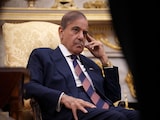Tariffs, aid cuts and visa limits under Donald Trump's foreign policy are eroding US influence in Southeast Asia, where China is increasingly seen as dominant, the Sydney-based Lowy Institute said in a report.
In its Southeast Asia Influence Index released Wednesday, the think tank ranks Washington behind Beijing as the region's most influential external partner, citing "patchy" diplomacy. China, by contrast, has entrenched itself across the region with consistent trade, investment and diplomatic efforts.
"China is everywhere in Southeast Asia," the report said, assessing partners on trade, investment and defense. "The United States, by contrast, shows two differing faces in Southeast Asia."
"The global policies of the Trump administration on tariffs, aid cuts, and international education are only likely to accentuate the disconnect between the United States and these countries," it adds.
China dominates regional trade, taking 20% of exports and supplying 26% of imports, compared with 16% for the US, the report said. The gap is widest in Cambodia, Laos and Myanmar, where China's influence is 60% to 150% greater than Washington's.
US influence remains strongest in traditional partners such as the Philippines and Singapore, where defense ties are central. But across mainland Southeast Asia, Washington is increasingly seen as peripheral, the study said.
Those dynamics will be on display next month, when Trump is expected to attend the Association of Southeast Asian Nations summit in Malaysia.
The report cited Trump-era tariffs, visa limits and an 83% cut to foreign aid as factors behind the decline. Southeast Asian nations were hit hard when tariffs were imposed in April, with Laos and Myanmar still facing 40% duties even after July revisions.
Trump's second term in office has seen the dismantling of USAID as well as massive funding cuts and layoffs at organizations that for decades served as a source of American soft power in Asia, namely the US Agency for Global Media, which oversees outlets like Voice of America and Radio Free Asia.
In July, Senate Democrats accused Trump of "ceding global leadership to China," citing the trade war and retreat from engagement through aid and media cuts. A Pew Research Center survey found favorable views of Beijing at a six-year high of 32% in wealthy nations, while approval of the US fell to 35%, the lowest since 2017.
The findings show how China has used trade, investment and diplomacy to expand its reach in a region once dominated by Washington. At the same time, Southeast Asian states are diversifying to avoid reliance on a single power and to limit geopolitical risks.
"China leads the United States by a clear margin," Lowy's deputy research director Susannah Patton said of the findings. "But we also demonstrate the importance of neighborhood relationships among Southeast Asian countries, which means that China has not drawn the region into an uncontested sphere of influence."
(Except for the headline, this story has not been edited by NDTV staff and is published from a syndicated feed.)















